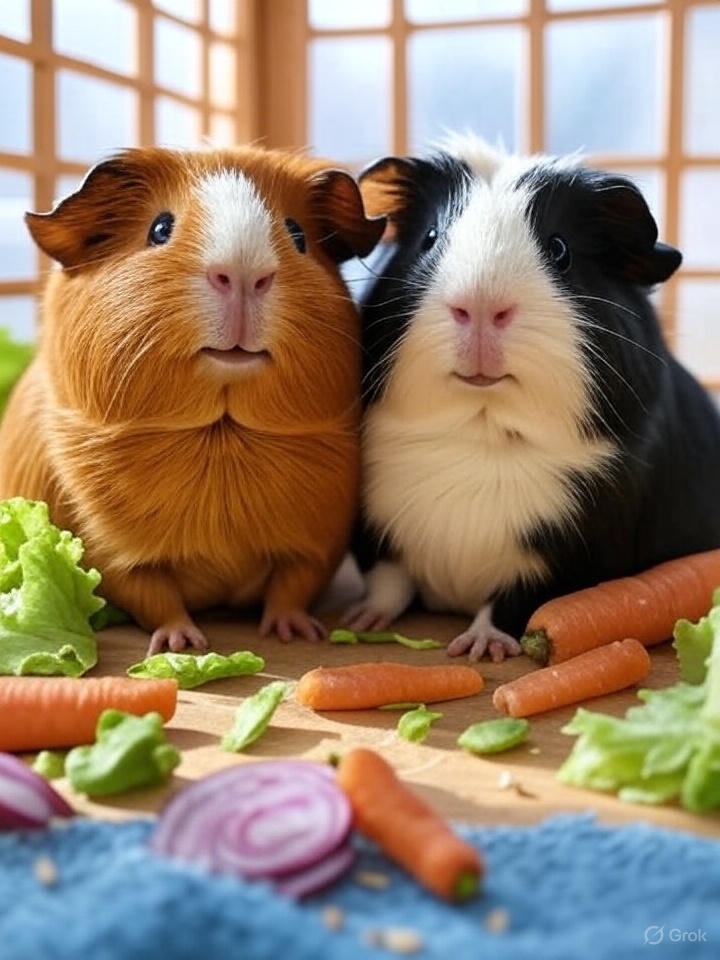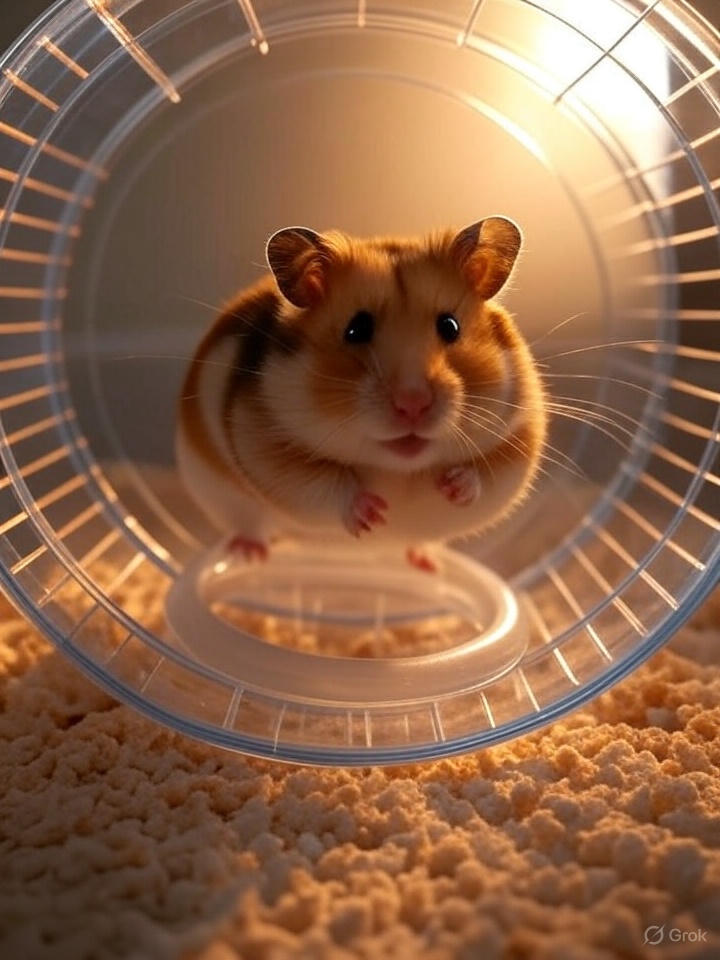Introduction: Finding Your Perfect Pet Match
Choosing the right pet is one of life’s most rewarding decisions, but it can also feel overwhelming with so many options available. Whether you’re a busy professional seeking a low-maintenance companion, a family with young children looking for kid-friendly pets, or a beginner wondering about the easiest pets to take care of, this comprehensive guide will help you make an informed decision.
According to the American Pet Products Association, approximately 70% of U.S. households own pets, spending over $136 billion annually on pet care. With such a significant commitment involved, understanding which pets align with your lifestyle, space, and experience level is crucial for both you and your future companion’s happiness.
Understanding Pet Categories: From Traditional to Exotic
Small Pets & Rodents: Perfect for Beginners
Guinea Pigs: The Social Butterflies Guinea pigs consistently rank among the best pets for beginners due to their gentle nature and social personality. Unlike hamsters, guinea pigs are active during the day, making them ideal for children who want to interact with their pets after school. These intelligent and social small pets require companionship, so they’re best kept in pairs.
Care requirements include a spacious cage (minimum 7.5 square feet for two), daily vitamin C supplements, and regular social interaction. Their lifespan of 4-8 years represents a moderate long-term commitment pet option that teaches responsibility without the decades-long commitment of larger animals.
Hamsters: Independent Night Owls For those seeking truly low-maintenance pets for home settings, hamsters offer an excellent entry point into pet ownership. Syrian hamsters prefer solitude, while dwarf varieties can live in pairs. Their small space requirements make them perfect small animals ideal for low space living situations.
Rats: The Underestimated Geniuses Often overlooked, rats are among the most intelligent and social small pets available. According to research published in behavioral journals, rats can learn their names, come when called, and even learn simple tricks. They’re excellent for teaching responsibility through pets while requiring minimal space.
Gerbils: The Desert Survivors Gerbils produce less waste and odor than other rodents, making them ideal for apartment living. These social animals kept in pairs are active, curious, and require minimal maintenance compared to other small pets.
Fish & Aquatic Pets: Serene and Therapeutic
Betta Fish: Beautiful Solitary Swimmers Contrary to popular belief, betta fish require more than a bowl. These vibrant fish need heated, filtered tanks of at least 2.5 gallons. Forbes has highlighted aquarium keeping as a growing hobby, with betta fish leading the way for beginners due to their hardiness and stunning appearance.
Betta fish care tips include maintaining water temperature between 76-82°F, providing hiding spots, and feeding high-quality pellets. Their 2-4 year lifespan makes them suitable for those wanting a pet living needs commitment without long-term obligations.
Community Fish Setups For those interested in more dynamic aquatic displays, community tanks with compatible species like tetras, mollies, and corydoras create stunning underwater ecosystems. These setups require more initial investment but provide endless entertainment and relaxation benefits.
Reptiles: Low-Maintenance Exotic Appeal
Leopard Geckos: The Perfect Reptilian Starter Leopard geckos represent an excellent entry point into reptile ownership. Unlike many reptiles, they don’t require UVB lighting and are comfortable with human handling. Their docile nature and simple care requirements make them suitable for families and beginners alike.
Bearded Dragons: Interactive Reptile Companions Wikipedia describes bearded dragons as among the most social reptiles, often recognizing their owners and enjoying interaction. While requiring more specialized care than geckos, their engaging personalities make them worthwhile companions for dedicated owners.
Traditional Pets: Time-Tested Companions
Cats: Independent Yet Affectionate Cats offer the perfect balance of companionship and independence. The American Veterinary Medical Association notes that cats require less daily maintenance than dogs while providing comparable emotional benefits. Indoor cats live 13-17 years on average, representing a significant but rewarding long-term commitment.
Dogs: Loyal Family Members While requiring more attention than other pets, certain dog breeds excel as family pets for those ready for the commitment. Breeds like Golden Retrievers, Labrador Retrievers, and Cavalier King Charles Spaniels consistently rank high for their durability with kids and gentle temperaments.
Lifestyle-Based Pet Selection Guide
Best Pets for Busy Professionals

For individuals with demanding careers, low needs in space and interaction pets offer companionship without overwhelming responsibility:
- Fish: Require feeding once daily and weekly tank maintenance
- Cats: Independent nature suits busy schedules
- Reptiles: Weekly feeding schedules and minimal daily care
Kid-Friendly Pets for Families
When selecting pets for families with young children, consider durability with kids and educational value:
Top Family-Safe Pets:
- Guinea Pigs: Gentle, rarely bite, teach nurturing
- Rabbits: Soft, social, good for older children
- Cats: Patient breeds like Ragdolls or Maine Coons
- Fish: Safe, educational, low maintenance
Parent Magazine emphasizes that pet ownership helps children develop empathy, responsibility, and nurturing skills while providing emotional support and companionship.
Apartment-Friendly Options
Small pet apartment care setup considerations include noise levels, space requirements, and lease restrictions:
Ideal Apartment Pets:
- Small rodents (under 20 gallons tank space)
- Fish (various tank sizes available)
- Cats (if allowed by lease)
- Small reptiles (minimal space requirements)
Beginner Pet Owners
The easiest pets to take care of for newcomers include:
- Betta Fish: Simple care routine, beautiful appearance
- Hermit Crabs: Unique, low maintenance
- Sea Monkeys: Virtually maintenance-free
- Guinea Pigs: Gentle, forgiving of minor care mistakes
Special Considerations: Hypoallergenic and Therapeutic Pets
Hypoallergenic Pets for Allergy Sufferers
For families dealing with allergies, several options provide companionship without triggering reactions:
- Reptiles and Fish: Produce no dander
- Hairless Cat Breeds: Sphynx cats produce less allergens
- Poodle-Mix Dogs: Low-shedding coats trap allergens
- Birds: Powder-free species like cockatiels
Pets for Seniors and Therapeutic Purposes
The growing recognition of pets’ therapeutic value has led to increased interest in pets for seniors or elderly care settings. According to studies referenced by major health organizations, pet ownership can reduce blood pressure, decrease loneliness, and provide routine structure.
Ideal Senior Companions:
- Cats: Low maintenance, affectionate
- Small dogs: Manageable size, loyal
- Fish: Calming, minimal physical demands
- Birds: Social interaction, entertainment
Cost Considerations and Budget Planning
Initial Setup Costs Comparison
Understanding the financial commitment helps in making informed decisions:
Low Initial Investment (Under $100):
- Betta fish and basic setup
- Hamster with cage and accessories
- Hermit crabs with habitat
Moderate Investment ($100-300):
- Guinea pig pair with proper housing
- Basic reptile setup
- Small bird with cage
Higher Investment ($300+):
- Large aquarium systems
- Dog adoption fees and supplies
- Exotic pet setups with specialized equipment
Ongoing Care Expenses
Monthly care costs vary significantly:
- Fish: $10-20 (food, water treatments)
- Small Rodents: $15-30 (food, bedding, toys)
- Cats: $50-100 (food, litter, healthcare)
- Dogs: $100-300 (food, grooming, healthcare)
Health and Safety Considerations
Child Safety Guidelines
When introducing pets to families with young children, safety remains paramount:
- Supervision Requirements: All pet interactions should be supervised until children understand proper handling
- Hand Washing: Establish hygiene routines after pet contact
- Age-Appropriate Pets: Match pet selection to child’s developmental stage
- Emergency Preparedness: Know basic first aid for both pets and potential injuries
Common Health Concerns
Different pet types present unique health considerations:
Zoonotic Disease Prevention:
- Regular veterinary check-ups
- Proper hygiene practices
- Understanding species-specific health risks
- Vaccination schedules where applicable
Adoption vs. Purchasing: Making Ethical Choices
Benefits of Adopting Shelter Pets
Animal shelters and rescue organizations offer numerous advantages:
- Cost Savings: Often include initial veterinary care
- Variety: Wide selection of ages and temperaments
- Support: Ongoing advice and sometimes return policies
- Social Impact: Saving lives and supporting animal welfare
The ASPCA reports that approximately 3.1 million dogs and 3.2 million cats enter U.S. shelters annually, with many being excellent family companions waiting for homes.
Responsible Breeding Practices
When purchasing from breeders, research extensively:
- Health Testing: Verify genetic health screening
- Facility Visits: Observe living conditions
- References: Contact previous customers
- Documentation: Ensure proper registration and health records
Creating the Perfect Pet Environment
Housing Requirements by Pet Type
Small Mammals:
- Minimum cage sizes based on species
- Appropriate bedding materials
- Exercise wheels and enrichment items
- Temperature and humidity control
Aquatic Pets:
- Tank size calculations (1 inch of fish per gallon minimum)
- Filtration and heating systems
- Water quality testing and maintenance
- Aquascaping for natural environments
Reptiles:
- Proper heating gradients
- UVB lighting requirements (species-dependent)
- Humidity control systems
- Security features to prevent escapes
Environmental Enrichment Strategies
Mental stimulation prevents behavioral problems and promotes well-being:
Universal Enrichment Principles:
- Variety: Rotate toys and activities regularly
- Natural Behaviors: Provide species-appropriate outlets
- Social Interaction: Balance solitude with engagement
- Problem Solving: Food puzzles and exploration opportunities
Advanced Care Topics
Understanding Pet Behavior
Recognizing normal vs. concerning behaviors helps maintain pet health:
Signs of Healthy, Happy Pets:
- Regular eating and drinking patterns
- Normal elimination habits
- Active, alert behavior during species-appropriate times
- Social interaction (when applicable)
- Grooming behaviors
Warning Signs Requiring Veterinary Attention:
- Changes in appetite or water consumption
- Lethargy or unusual behavior patterns
- Physical symptoms (discharge, limping, difficulty breathing)
- Aggression or extreme fearfulness
Seasonal Care Adjustments
Pet care needs change throughout the year:
Summer Considerations:
- Heat stroke prevention
- Increased water availability
- Air conditioning needs for heat-sensitive species
- Parasite prevention
Winter Preparations:
- Heating requirements for cold-sensitive pets
- Reduced daylight effects on behavior
- Indoor air quality concerns
- Emergency preparedness for power outages
Building Long-Term Pet Relationships
Training and Socialization
Even small pets benefit from basic training:
Small Mammal Training:
- Litter training for rabbits and rats
- Name recognition for guinea pigs
- Handling desensitization for all species
Fish Training:
- Feeding time conditioning
- Simple tricks (following fingers, swimming through hoops)
- Recognition training
Veterinary Care Planning
Establishing relationships with appropriate veterinary professionals ensures long-term health:
Selecting Veterinarians:
- Experience with chosen pet species
- Emergency availability
- Cost transparency
- Communication style compatibility
Technology and Modern Pet Care
Digital Tools for Pet Owners
Modern technology enhances pet care:
Useful Applications:
- Feeding schedule reminders
- Health tracking apps
- Species-specific care guides
- Veterinary consultation platforms
Monitoring Equipment:
- Automatic feeders for consistent schedules
- Temperature and humidity monitors
- Security cameras for behavior observation
- Water quality testing devices for aquatic pets
Conclusion: Your Journey to Perfect Pet Companionship
Selecting the ideal pet requires careful consideration of your lifestyle, living situation, experience level, and long-term commitment capacity. Whether you choose the gentle companionship of guinea pigs, the serene beauty of fish, the exotic appeal of reptiles, or the traditional loyalty of cats and dogs, success depends on matching your pet’s needs with your ability to provide excellent care.
Remember that every pet, regardless of size or species, deserves:
- Appropriate housing and environment
- Proper nutrition and healthcare
- Mental stimulation and social interaction
- Love, patience, and respect
The rewards of responsible pet ownership extend far beyond simple companionship. Pets teach us about responsibility, provide emotional support, reduce stress, and often become beloved family members whose presence enriches our lives immeasurably.
As you embark on your pet ownership journey, continue learning about your chosen companion’s specific needs. Join online communities, consult with veterinarians, and remember that the best pet is one whose needs you can consistently meet throughout their lifetime.
Your perfect pet companion is waiting – take the time to choose wisely, and you’ll be rewarded with years of joy, laughter, and unconditional love.
For more detailed care guides, species-specific information, and ongoing pet care tips, explore our comprehensive resource library at PocketPets.site. Remember to consult with veterinary professionals for health-related concerns and always prioritize your pet’s welfare above all else.

